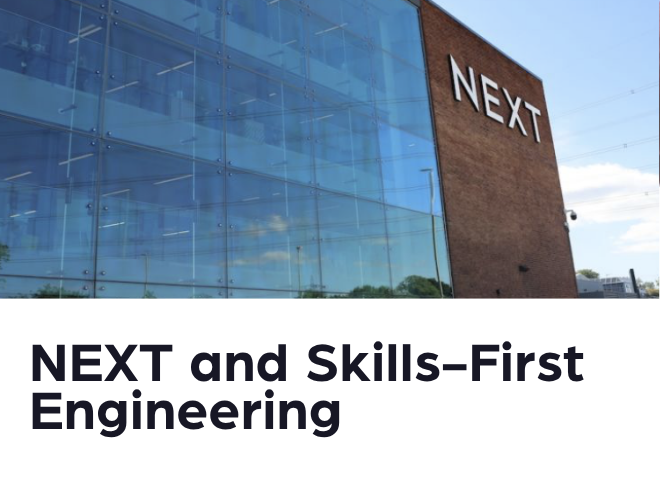Quick Facts
Career Switch: Royal Navy Marine Engineer → Day Engineer at Digital Realty
Transferable Skills: Ship systems maintenance, diesel generators, high-pressure pumps → Data centre infrastructure, preventative maintenance, system diagnostics, critical operations
Service: 4 years Royal Navy, specialised in marine engineering across multiple ship sections
After years of maintaining critical systems on Royal Navy ships, Sam thought he'd need to completely retrain for civilian life. Instead, he discovered that data centres run on the same principles as the ships he'd spent years keeping operational.
Military Background
Sam served four years in the Royal Navy as a marine engineer, initially specialising in high-pressure saltwater pumps and critical ship systems before moving to the diesel section, where he spent most of his time on four diesel generators, power distribution systems, and the ship's rigid inflatable boats (RIBs).
The role demanded comprehensive technical knowledge. "You have to do rounds and shift work. So you have to know all the kit, because when you're doing your rounds, you need to know if something's gone wrong," Sam explains.
Why He Left
Sam always planned a four-year stint. His father had planted the seed early on, suggesting that an engineering background combined with military experience would make him highly employable.
“Once you've got an engineering background and the military background as well, a lot of companies would really be interested in employing you."
The Path to Digital Realty
Initially heading for the oil rigs, he spent just under two years working three weeks on, three weeks off.
"I enjoyed the work. But it was three weeks on, three weeks off, and I kind of got to the point where I didn't want to do the three weeks on anymore. I wanted to be able to come home every night."
After leaving during COVID, Sam moved to Ibiza to become a fitness trainer. But he learned an important lesson: "When I turned my hobby into a job, it kind of made me lose the love for it a little bit."
Ready to return to engineering, Sam's break came through pure chance. Bumping into a former colleague in a Tesco, he learned about opportunities at Digital Realty.
"He just said, if you ever want a job, then get in contact with me. Very, very lucky."
What Stood Out About Digital Realty
For Sam, Digital Realty offered something rare: job security in a future-proof industry. He sees data centres as the new version of engineering, something that can't be outdated or replaced by AI because you're actually maintaining the infrastructure that supports it.
The work variety was another major draw, offering the same technical diversity that attracted him to the Navy in the first place.
Life as a Day Engineer
Now working as a day engineer, Sam's role combines diagnostics with preventative maintenance. His primary responsibility? To keep things running. Making sure that the data centres are at the correct temperature, and that they've always got power to them.
Military Skills in Action
Sam's Navy experience translates perfectly, particularly the work ethic developed under pressure.
"In the military, we were so busy, it was so flat out. You take that same work ethic and drive from the military and put it here, and everyone just thinks you're crazy."
The nature of naval training proves invaluable.
"The military skill set is what makes a difference; it's so comprehensive. You're working with fridge systems and gas turbines, high-pressure and low-pressure pumps, diesels. You've got the whole switching setup. So it's so varied"
His Advice to Naval Engineers
Sam's message to current naval engineers is simple: data centres are the best industry to get into. He sees Navy personnel as a perfect fit because of their varied technical experience and military work ethic.
"I would say that this industry is probably the best one to get into." He sees the perfect match. "The Navy guys fit in so well here just because of the variation and the work ethic."
The Bottom Line
Sam's journey proves that naval engineering skills translate directly to data centre operations. The same systematic approach and varied technical knowledge that kept naval vessels operational are exactly what keep data centres running.
For naval engineers wondering about their next move, Sam's story shows that sometimes the perfect civilian role is one you've never heard of, but one that desperately needs exactly what you already know how to do.
[CALLOUT]






.avif)


